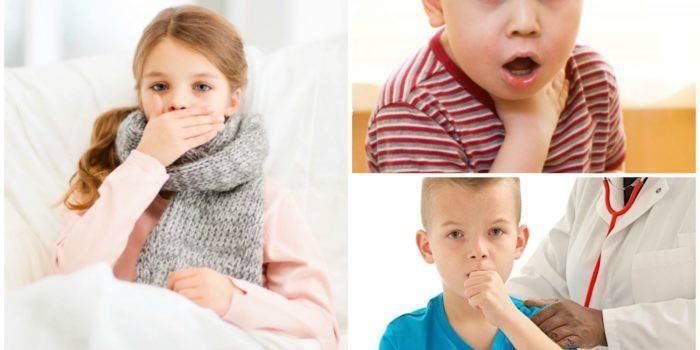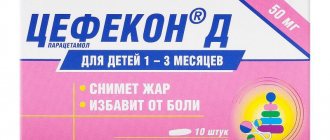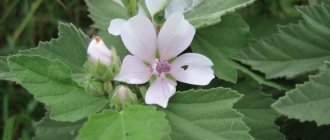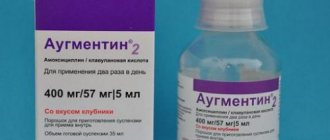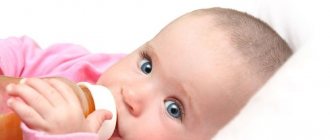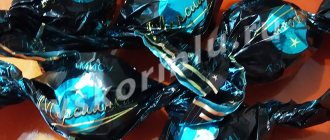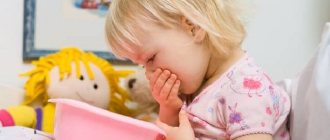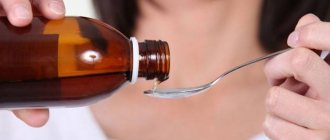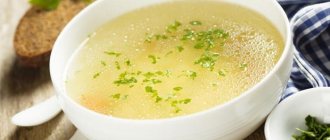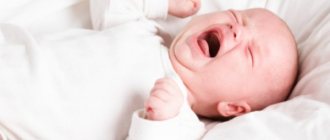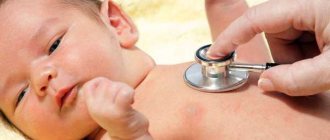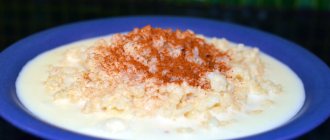Effective cough remedies for children from 1 year of age
Types and principles of action of cough medicines
Medicines for the treatment of cough in children are available in several dosage forms:
- 1. Tablets - contain a higher concentration of the active substance than in syrups and drops. Therefore, they are recommended for children aged six years and older.
- 2. Syrups - have a sweet taste, children take it with pleasure. The safest form for a small child.
- 3. Drops are an alternative to tablets and syrups. Plant-based drops are most often used.
- 4. Ointments - warm up, helping the body fight colds
All children's medications for this disease can be divided into 2 groups:
- having an expectorant effect.
- helping to suppress the cough reflex.
Drugs from the first group are more preferable for use, because they help thin sputum and make coughing easier.
Medicines from the second group are rarely prescribed to children, since they do not fight the causes of the disease, but only suppress it. The principle of action of such drugs is to influence the center in the brain responsible for the cough reflex. Thus, signals from the bronchi are blocked - coughing does not occur. These drugs often contain codeine. The use of medications with this component is contraindicated for children. Since in this case the disease itself is not treated, and the sputum remains in the bronchi, this is a direct path to bronchitis or pneumonia.
The exception is a situation where the child has been suffering from prolonged frequent coughing attacks for a long time. But it is necessary to use medications that suppress the cough reflex only on the recommendation of a pediatrician.
Features of choosing a medicine for a child over 1 year old
When choosing a medicine, first of all it is necessary to determine what type of cough the child has: dry or wet. Each of them has its own causes and methods of treatment.
With a dry cough, there is hardness of breathing, swelling of the pharynx and airways. Sputum does not come away due to its viscosity and stringiness.
Wet is characterized by good discharge of bronchial secretions, most often this is facilitated by the use of expectorants and plenty of warm drinks.
For children aged one year and more, it is preferable to use syrups, since the active ingredients are contained in gentle concentrations.
Taking any drug to remove phlegm should be accompanied by plenty of warm drink.
Syrups for wet cough
The most popular medications to ease sputum discharge during a wet cough:
Drops are another type of medication whose action is aimed at removing phlegm. Suitable for children:
Tablets can be used to combat cough. There are a number of quite effective means:
Warming ointments
To combat cough, ointments can be used as part of complex therapy. They are applied to the baby's chest, warming and making breathing easier. These remedies are also good for treating a runny nose.
Treatment with ointments can be carried out only if the child does not have a fever.
Folk remedies for treatment
If pharmaceutical drugs do not show the expected effect, a folk remedy can be given to the child to treat a cough. Among the most famous recipes:
- 1. Carrot smoothie. To prepare it, take freshly squeezed carrot juice and sugar syrup in a 1:2 ratio, place the components in a jar with a tight-fitting lid and mix thoroughly. The resulting product is stored in the refrigerator. This folk remedy should be given to the baby 1 teaspoon 4 times a day.
- 2. Honey-glycerin medicine. To prepare it, you need to mix 1 glass of honey, the juice of 2 lemons and a 5 ml bottle of glycerin. It is recommended to take this remedy 7 times a day: before and after each meal and at night. It is recommended to shake the drug before each use.
- 3. Milk-egg shake. You need to take 1 glass of hot milk and add 1 tbsp to it. l.butter and honey. All ingredients should be mixed and a well-beaten egg yolk and soda should be added at the tip of a knife. This cocktail should be taken 3 times a day until complete recovery.
Conclusion
For faster treatment of the disease, parents should not only give medications to their children, but also provide conditions conducive to recovery. Namely: humidify the air, maintain a cool temperature in the child’s room and give him plenty of warm tea or milk.
If, despite the use of medication, the cough does not go away, this may indicate a more serious diagnosis. To exclude this possibility, at the first symptoms of cough in a child, you should contact your pediatrician.
Basic information
Dry cough syrup is available in plastic bottles, the proportion of powder in which is about 20 g, and paper bags, packaged in 5 or 10 pieces.
The mass of each of them is 1.47 g. Its main components are extracts:
- marshmallow root - 4 g;
- licorice - 1 g;
- anise seeds - 0.05 g.
In addition, it contains:
- sodium salt of benzoic acid;
- sucrose - 10 g.
The drug can be used to treat infants over six months of age if the symptom is accompanied by thick and viscous sputum. If necessary, you can add sodium bicarbonate (baking soda) to the cough syrup. By reacting with the active components, the substance begins to alkalize the mucus, due to which the viscosity of the sputum is significantly reduced. The drug should not be taken:
- diabetics;
- for allergy sufferers;
- children with individual intolerance to certain components;
- patients with glomerulonephritis and pyelonephritis.
The average cost of the drug does not exceed 15 rubles, and therefore it is a very popular remedy.
The dry mixture is diluted with warm boiled or distilled water, after which it acquires a brown tint and begins to smell like anise. Instructions for use depending on packaging are as follows:
| Form | Application |
| In bags | Contains a sufficient amount of powder for one-time preparation of a mixture for a child over 12 years of age. For young children, the dosage is selected by the doctor individually. It is necessary to pour the contents of the sachet into a glass, dilute it with 1 tbsp. l. water and stir thoroughly. |
| In a bottle | Add warm water to the special mark on the bottle, then shake the mixture and take. |
The finished mass is stored in the refrigerator for no more than 2 days, after which it loses its medicinal properties.
For wet cough
If your baby’s cough has become productive, the doctor will recommend mucolytics and expectorants, for example:
- Mukaltin. The main substance of such tablets is an extract from marshmallow, which is supplemented with sodium bicarbonate. The drug has an expectorant, enveloping and anti-inflammatory effect. It is prescribed from the age of 3, while for young children it is crushed into powder and then mixed with water.
- Thermopsol. A product containing thermopsis herb and sodium bicarbonate. Reflexively affects the bronchi, stimulating the production of sputum and its expectoration. The dosage for different ages is selected by the doctor.
- Ambroxol. This drug has a mucolytic effect. The tablet form is prescribed to children from 12 years of age.
- Bromhexine. This medicine has both an expectorant and mucolytic effect. Appointed from 3 years of age.
- Lazolvan, Ambrobene and Flavamed. These drugs contain ambroxol, so the drugs are classified as mucolytics. Such tablets are prescribed from the age of 12.
- Ascoril. A combined drug with bronchodilator, mucolytic and expectorant effects. Appointed from 6 years of age.
- Pectusin. This drug is based on eucalyptus oil and menthol, so this medicine has a distracting, antitussive and anti-inflammatory effect. Children are prescribed from 7 years of age.
How to treat a cough in a 6-year-old child: medications
Medicines are prescribed depending on the type of cough and its cause.
During dry attacks, it is very important to transform the cough into a productive one - wet. For this purpose, drugs are used that help to achieve this.
In addition, for severe attacks, antitussives are used to relieve attacks. For wet cough, mucolytics and expectorants are prescribed. The main goal here is to liquefy and remove phlegm.
Here are the types of medications that are used in treatment:
- Antitussives. Such drugs relieve severe attacks (Bronchicum, Sedotussin).
- Mucolytics thin the mucus. Lazolvan or Ambrobene may be prescribed.
- Expectorants speed up the process of mucus removal (Pertussin, Mucaltin).
Bronchicum S is an antitussive herbal medicine. It has an antibacterial effect and also relieves spasms during attacks. Available in the form of syrup and lozenges. The syrup can be used by children from 6 months, and lozenges are allowed for children 6 years old. You should take 1 lozenge several times a day (no special instructions). Rash and hives may occur when using the medicine. It is not recommended for use if you are hypersensitive to the components.
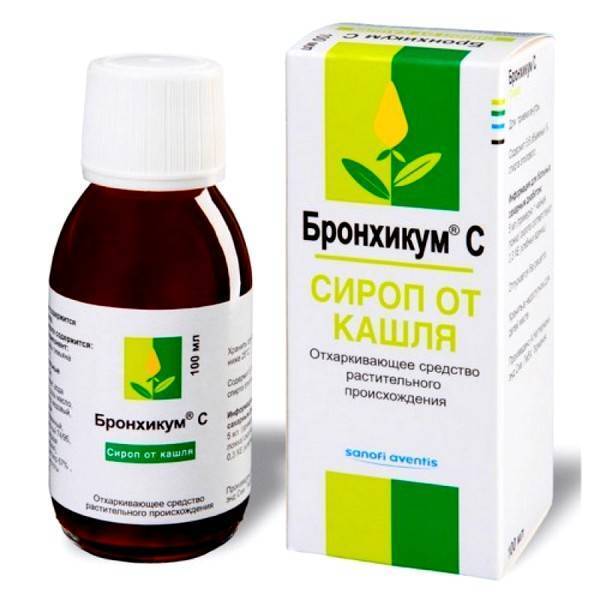
Sedotussin – has a weak anesthetic effect. The product can be used from 4 months for attacks of dry cough. Children 6-10 years old can drink 10 ml 3 times a day; at other ages the dose will be different. Side effects - nausea, dry mouth. You should not take this medicine if you have bronchial asthma or a wet cough.
Lazolvan is produced in syrup. The product helps with coughs with very thick mucus that is difficult to separate. Children 6-12 years old can drink 5 ml several times a day; at a younger age, the doses will be smaller. When taken, abdominal pain and skin itching are possible. The only contraindications are hypersensitivity to the product.
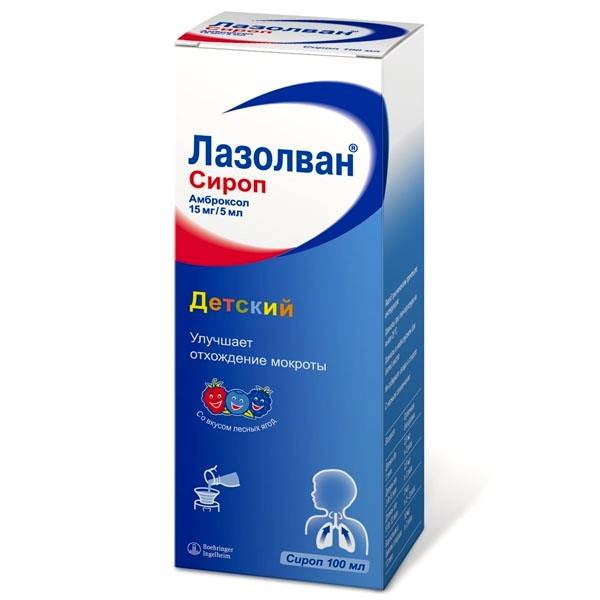
Ambrobene - the drug helps mucus become less thick, used for acute and chronic diseases of the respiratory tract. The medicine comes in the form of tablets and syrup. Tablets can be used from 6 years of age - ½ tablet 2 times a day. As for the syrup, at the age of 6 years you can take 2 ml a couple of times a day. Nausea and vomiting may occur when taking the medicine. Do not use this product if you have kidney problems.
Pertussin is a syrup. An expectorant is used for wet coughs. Children aged 6-12 years can take 1-2 tsp. several times a day. Treatment usually lasts 2 weeks. Heartburn and allergies may occur.
Mucaltin is used to relieve attacks of wet cough. This is a herbal preparation. It can be used 1 tablet 3 times a day for children 3 years of age and older. Side effects include mild nausea and mild allergies. There are almost no contraindications, but the product is not recommended for children under one year of age.
There are other medications that help with coughing attacks. The attending physician will decide on the prescription of certain drugs and a specific dose. You must follow the instructions strictly, as you can get the opposite effect.
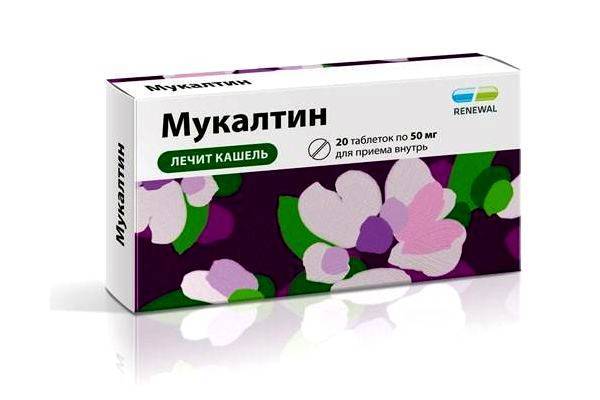
Medicines for treating cough
It does not matter at what age the child developed the symptom in question. A newborn or teenager needs timely help. If treatment is necessary for a small child after birth, therapy is usually carried out in an inpatient setting. This is due to the fact that in infants up to 4-6 weeks of life, the respiratory system is not yet fully formed and various complications may arise.
You might be interested: Is bronchitis contagious or not?
Up to a year, a baby can be given a limited list of medications. Many drugs have their own side effects. Their use should be carried out exclusively as prescribed by a doctor. In addition, it is important to understand that therapy for any type of cough can only be started if a diagnosis is made and the nature of this negative symptom is determined. Otherwise, the treatment will be ineffective and may even cause complications.
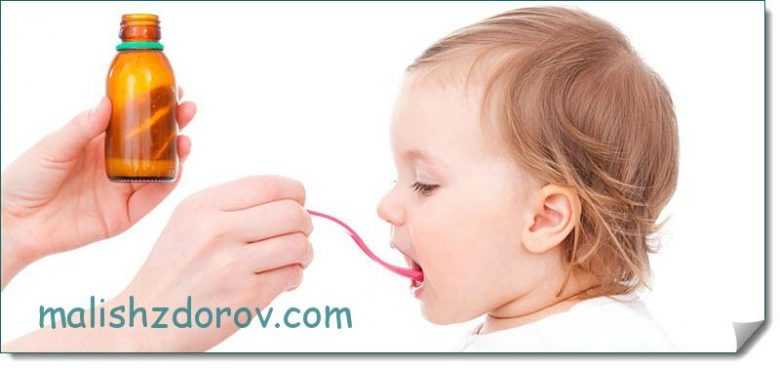
You might be interested in reading this article about treating coughs with banana-based recipes.
Medicines that have an expectorant effect
These drugs are prescribed to children for the treatment of wet, that is, productive cough. They are prescribed for both one-month and one-year-old babies, but the doctor selects a medicine that has minimal risks for children of a given age. The main task of the funds under consideration is the removal of sputum accumulated in the bronchi.
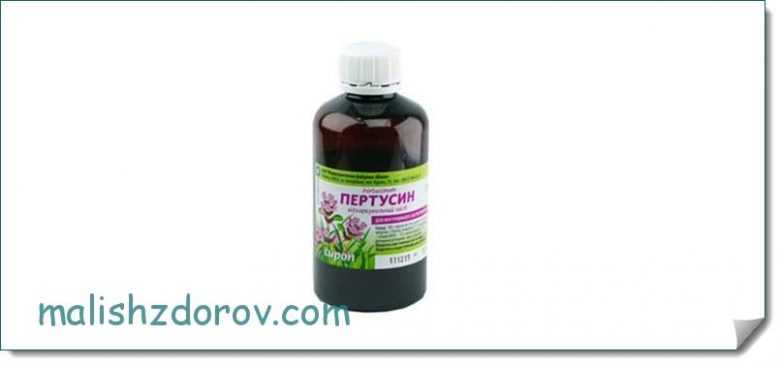
An expectorant medicine usually includes marshmallow and other natural herbs. Such drugs are often cheap, but have a good therapeutic effect. They are often used for bronchitis and tracheitis. Various chest infusions based on marshmallow, chamomile, calendula, ivy, and so on are excellent against coughs, including residual coughs. Prominent representatives of the group of expectorant drugs are Mucaltin syrup, Thermopsol, Pertusin, Gedelix.
Medicines that have a mucolytic effect
When coughing occurs in infants, it is very important to help the body cope with viscous sputum. It is difficult for a two- or three-month-old child to cough up thick mucus, so it is necessary to use medications to help thin it. Mucolytics have this therapeutic effect. They can be used by inhaler, nebulizer, or oral administration.
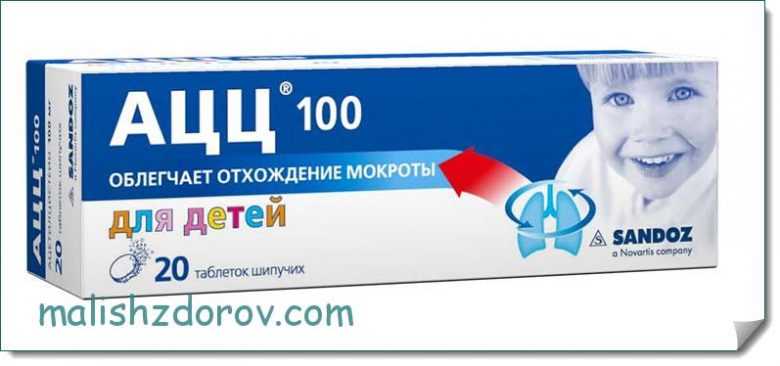
List of medications that children can take:
- Joset.
- ACC.
- Vicks Active.
- Bromhexine.
- Ascoril.
- Cashnol.
It is important to understand that these medications should be given to babies only as prescribed by a doctor, especially if treatment is required for a four- or five-month-old baby. Improper use of any syrups or tablets can cause severe complications in a small patient that may be incompatible with life.
Cough suppressants
This group of medications can be prescribed for severe coughs in children only by a specialist. Medicines that block the cough center often have various side effects. They include active ingredients such as glaucine and butamirate. Representatives of this group include Stoptussin, Falimint, Sinekod and others. To treat a lingering cough, Libexin, which contains prenoxdiazine, is also often prescribed.
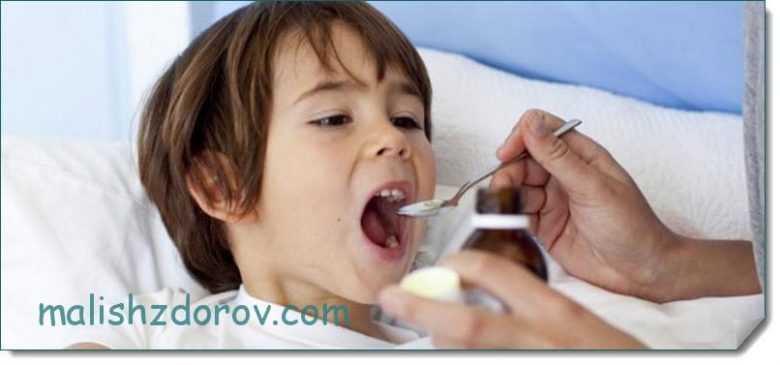
Under no circumstances should this group of medications be used for a productive cough. This can cause serious complications.
Bronchodilator medications
When it is necessary to improve breathing and increase the lumen of the bronchi, doctors usually prescribe bronchodilators. Such medications are indicated for obstructive bronchitis, cystic fibrosis, chronic obstructive pulmonary disease, bronchial asthma and other pathologies. Bronchodilators include:
- Eufillin.
- Isoprenaline.
- Berodual.
- Hydrocortisone.
- Cromolyn et al.
Particular caution should be taken when giving the described products to babies under one year old, for example, a six- or seven-month-old child.
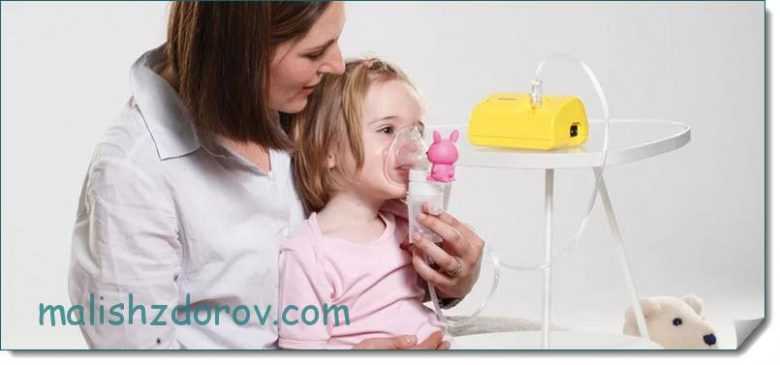
Experts often recommend treating coughs with bronchodilators using inhalations through a nebulizer. This is a modern, safe and effective therapy method that can be used at home.
Homeopathic remedies
When a cough and runny nose begin, homeopathy gives quite good results. In this case, therapy for children 7, 8, 9 years old and older is selected by a specialist based on the diagnosis and symptoms of the patient. This makes it possible to choose treatment tactics. With a well-chosen medicine and its correct administration, it is possible not only to cure the disease, but also to increase the body’s immune defense. Practice shows that homeopathy has proven itself in the treatment of mixed cough in children and adults.
You may be interested in: Stenosing laryngotracheitis in a child
Antiallergic medications
For an allergic cough that develops both during the day and at night, it is necessary to take medications with antihistamine action. Let's name inexpensive medicines belonging to this group:
- Diazolin.
- Zodak.
- Suprastin.
- Tavegil.
- Cetrin.
If an allergy develops, they can be given to an eight-month-old, eleven-month-old baby and older children in a dosage selected by a doctor. The drug is given to the patient more often than once a day, usually before bedtime.
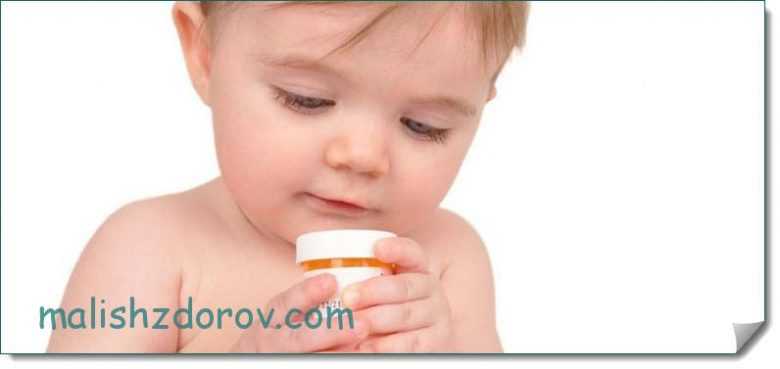
Treatment of an allergic reaction will be effective only if the patient is excluded from contact with the allergen.
Local agents
For children 10, 11, 12, 13 years old, you can use products that have a local irritant and warming effect. They can be used for bronchitis, laryngitis, tracheitis and other conditions. This will help the healing components reach the diseased area faster. Reviews from parents indicate that such medications have a quick and lasting effect. The ranking of the best local remedies includes:
- Mustard plasters.
- Ointment Doctor Mom.
- Dr. Theiss.
- Badger.
- Pulmex Baby and others.
Due to the fact that many local preparations contain eucalyptus, fir and other oils, they can cause allergies in a child. This is important to consider when starting treatment, especially when it comes to children aged one and a half years and younger. In addition, local irritating ointments should not be used at elevated body temperatures.
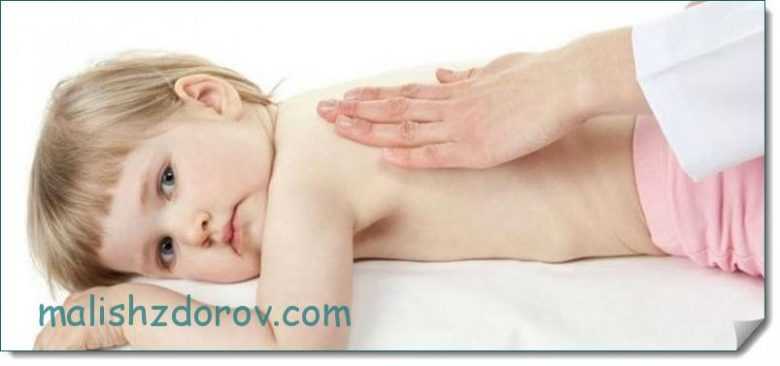
Bear or badger fat can be used as a warming ointment. This recipe is used at night and helps to cope with the removal of thick phlegm.
Inhalations
Inhalations have a good effect. They are carried out using the old method using hot steam or through a nebulizer. The latter method of treatment is considered more modern, effective and safe. Children's nebulizers can be purchased at any pharmacy.
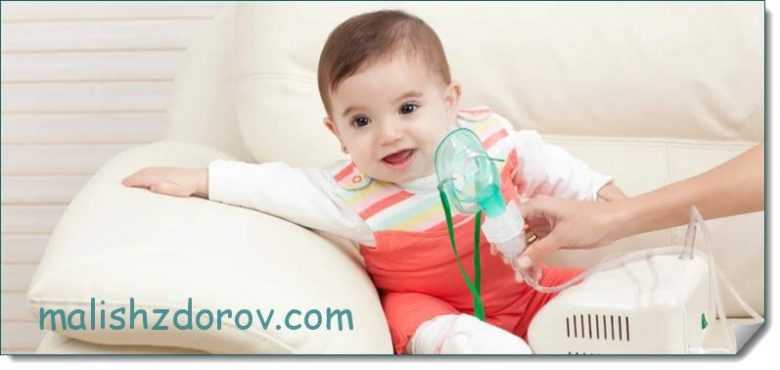
For dry cough, inhalation with saline solution is indicated. They help thin out the mucus and promote its rapid removal. In addition, through a nebulizer, you can treat colds and allergic diseases with the help of antitussives, mucolytics, bronchodilators and other groups of drugs.
Why are there so many cough suppressants?
When the respiratory organs are damaged by pathogenic and other agents, the latter actively produce sputum. This causes the person to start coughing actively. The symptom also occurs when the volume of mucus in the respiratory system is reduced. In this case, the patient coughs due to irritation of the bronchial mucosa.
Medications have different effects. The effect depends on the list of medicinal substances. Dry cough tablets suppress the body's reflex response. This reduces the load on the respiratory system. If an adult has a wet cough, the patient needs to take medications that remove mucus. It must be taken into account that as the pathology progresses, the dry cough becomes wet. When this happens, it is necessary to adjust the treatment regimen and use other tablets that help remove mucus.
Types of drugs
Dry cough mixture intended for children must be shaken before use.
You can take the required amount using a measuring spoon or a teaspoon. The powdered mixture must be diluted with water before use. Frequently prescribed drugs:
| A drug | Properties |
| "Gedelix" | The main active ingredient in the drug is ivy. Liquefies mucus and promotes faster recovery. |
| "Gerbion" | Herbal components soothe the irritated mucous membrane, enveloping it. Not recommended for children under 1 year of age. |
| “Pertussin” | Stops attacks and removes phlegm. You cannot combine the drug with other cough medications and give it to children under 3 years of age. |
| “Linkas” | In a short time, it calms even a strong cough and promotes the removal of phlegm. |
| "Doctor Mom" | Destroys microbes, softens the mucous membrane, reducing its inflammation. May trigger the onset of an allergic reaction. |
| “Bronchicum” | Used for any type of cough. |
| “Sinecode” | It is especially effective for severe symptoms, as it belongs to a group of drugs that block the cough center in the brain. Additionally, it has a bronchodilator effect and relieves inflammation. May have a negative effect on the kidneys, liver and gastrointestinal tract. |
| "Doctor Theiss" | The main active ingredient in the composition is plantain. Relieves inflammation and removes phlegm. Not recommended for children under 1 year of age. |
| “Lazolvan” | Cough medicine for children that has no age restrictions. Reduces the density of sputum and facilitates its removal from the body. |
| “Bronholitin” | It has a restorative effect on the bronchi and normalizes their functioning. |
Most remedies are not recommended to be taken on an empty stomach. Regardless of what form of cough medicine is used (powder or liquid), at the first manifestation of side effects, you should stop taking it and seek medical advice.
At the same time, you need to be prepared for the fact that a cough can appear not only during infection with infectious diseases, but also as a result of an allergic reaction or foreign objects entering the respiratory tract.
Principles of cough treatment in one-year-old children
In a child under 1 year of age, cough begins under the influence of pathogens or mechanical factors. They irritate receptors either inside the respiratory tract or outside the respiratory system. Therefore, pediatricians recommend conducting a comprehensive examination of the child at the first signs of illness, and not skipping scheduled examinations by a pediatric cardiologist, gastroenterologist, ENT specialist, and other doctors.
What methods can be used to cure cough in children under 1 year of age:
| Main types of cough | Principles of treatment depending on the nature of the cough |
| Main differences between treatments | General treatments |
| Dry | Antitussives are prescribed to suppress cough. Inflammation is relieved with NSAIDs or glucocorticosteroids. Remove the foreign body from the respiratory tract. |
Treat the cause of cough with etiological medications with antiviral, antibacterial, antifungal, and antihistamine properties.
Wet Sputum is thinned with mucolytics.
The removal of secretions is accelerated by expectorants.
Drainage massage and warming accelerate the cleansing of the respiratory tract from secretions, and the lungs from infiltrate
Choking To increase the lumen of the bronchus, bronchodilators are prescribed (they do not treat either the cough itself or its cause).
To thin sputum and accelerate its removal, drugs with mucolytic and expectorant effects are used.
Massage and breathing exercises accelerate the cleansing of organs.
Allergic Gargling.
Rinsing the nose from mucus and allergens, particles of polluted air.
The child may be treated with antiparasitic and/or antihistamine medication.
Elimination of the provoking factor (replacement of medication, frequent wet cleaning, other measures)
Coughing A set of therapy methods is prescribed to treat the identified disease or eliminate a foreign body
The best cough syrups for children
Let's name drugs that give a good effect in the treatment of colds and inflammatory diseases accompanied by cough.
Fluditek
This syrup is good for wet, productive coughs in children. It is used from 2 years of age. The main active ingredient is Carbocisteine. Among the indications for the use of the drug are diseases characterized by the development of inflammation in the respiratory organs. It is prohibited to treat with syrup among children under two years of age, with gastric ulcers, as well as in the presence of individual intolerance to the active components of the suspension.
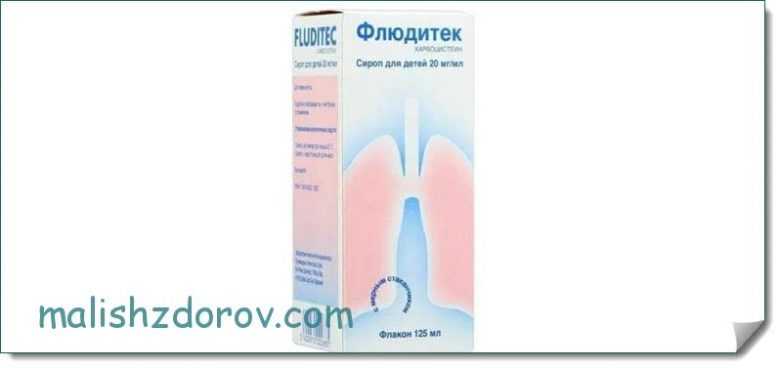
Side effects include disruption of the digestive system, skin itching and rashes. This condition does not require any action other than stopping the medication.
Rengalin
The elixir is prescribed to patients suffering from inflammatory and infectious diseases of the respiratory tract, accompanied by bronchospasm and difficulty breathing. The medicine is given to the child in a strict dosage, selected by a specialist taking into account the patient’s symptoms and diagnosis.
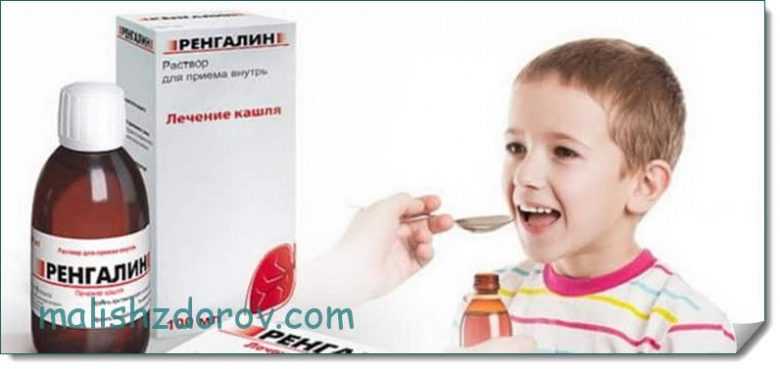
Treatment with Rengalin is carried out among children from three years of age. Patients who have personal intolerance to the components included in the medication are prohibited from taking the syrup.
You may be interested in: Instructions for the treatment of dry cough in children with or without fever
Thermopsis
For bronchitis, pneumonia, tracheitis and other diseases in children, Thermopsis is often used. The medicine has an anti-inflammatory, expectorant and enveloping effect. Among children, it is used from the age of three in the dosage indicated by the pediatrician.
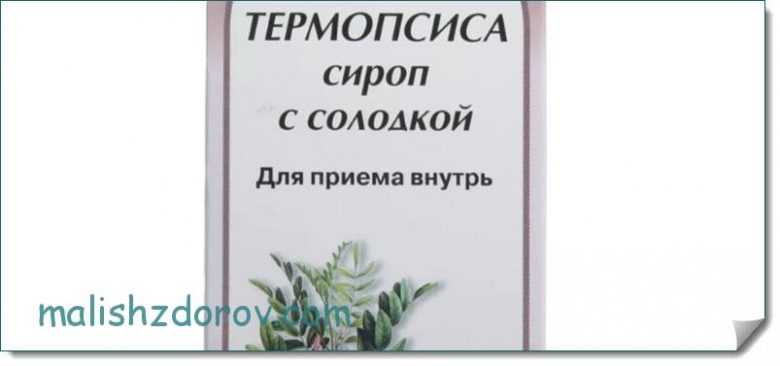
Independent use is not allowed. During therapy, an allergic reaction to the components of the syrup may develop in the form of skin itching and rashes. In this case, you should stop taking it and consult a specialist.
Bronchipret
Includes natural ingredients such as thyme and ivy herb extract. This makes it possible to use it among children with minimal risk of side effects. The dosage of the medication is selected by a specialist depending on the age and diagnosis of the patient. Babies from three months are prescribed 1 ml of the product three times a day, from 12 months to two years - 2 ml, from two to 6 years - 3 ml, from 6 years - 5 ml of syrup three times a day.
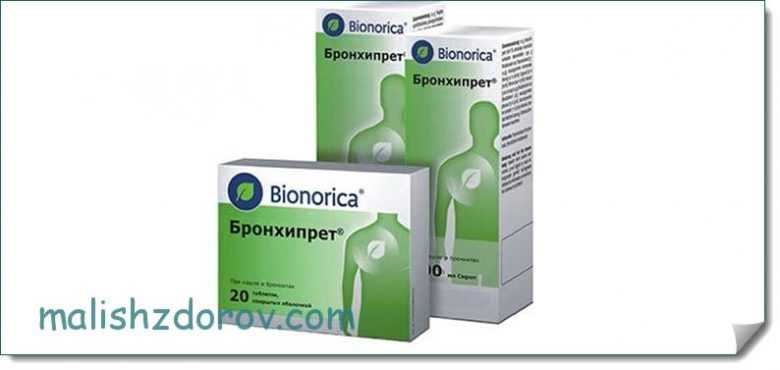
It is prohibited to carry out treatment with the described remedy among patients who are allergic to the components included in Bronchipret.
Linkas
This medicine contains natural ingredients such as extract of adhatoda vascularis, licorice roots, long pepper and other herbs. Linkas can be given to a child at the same time as other medications, for example, if you need to take antibiotics and antiallergic drugs. The medicine is actively prescribed by pediatricians for viral and bacterial diseases accompanied by a dry barking cough with difficult sputum production.
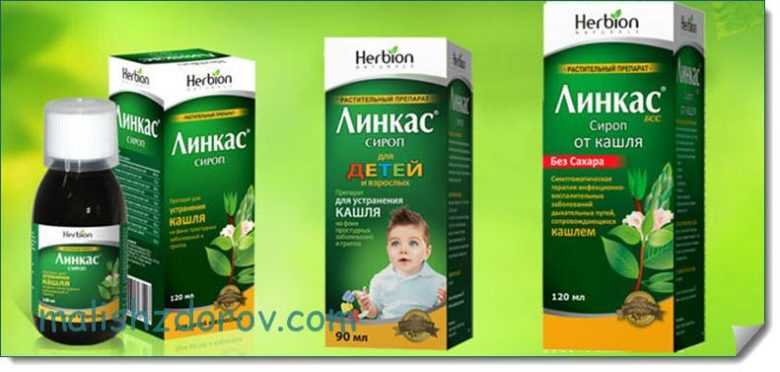
How long does it apply? It is prohibited to carry out therapy with syrup if the patient is under one year old. Among the contraindications, personal intolerance to the components included in the composition should be highlighted. The dosage is selected by the doctor taking into account the age, weight and diagnosis of the patient.
Ambrobene
This drug has a mucolytic and expectorant effect. The main active ingredient is ambroxol. Used among children from 2 years old. Indications for use: treatment of diseases, the course of which is accompanied by difficulty in clearing thick mucus from the respiratory tract. Ambrobene should not be used for severe kidney and liver diseases, together with other mucolytics, for fructose intolerance, and also among children under 2 years of age.
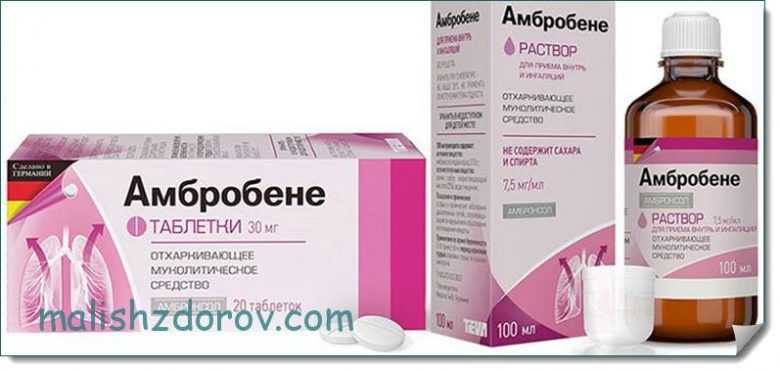
The dosage should be selected by the attending physician taking into account the individual characteristics of the patient’s body.
General list of medications
The domestic market offers the following products that have an antitussive effect:
The indication for the use of these tablets is considered to be a hysterical and dry cough.
The following drugs have a mucolytic effect:
- "Lazolvan";
- "Ambrobene";
- "Mukobron";
- "Fluimucil";
- "Ambrolan."
Mucolytic drugs eliminate prolonged attacks when the intensity of the symptom reaches its maximum values. For expectoration of sputum, the following are recommended:
This list is constantly updated. You can determine what should be taken in a particular case from the packaging or from the instructions.
The best cough medicines
The best cough medicine is different for everyone, because the human body, which is not fully understood, sometimes reacts differently to taking certain medications. That is why many people have their own good and effective remedy to help cope with this symptom. The list of the best cough remedies below is compiled based on reviews of people who recommend them for use
Please note that before using them you should consult your doctor for an accurate diagnosis.
Effective cough medicine "Doctor Mom"
This good cough medicine will help an adult if this symptom is productive. The best remedy "Doctor MOM" includes ginger, elecampane, licorice root, plantain and basil extract and other plant substances that have a beneficial effect on the respiratory tract. This best and most effective cough remedy comes in the form of syrup and lozenges. Both of these types are equally useful and effective. However, unlike syrup, lozenges also help soften severe attacks, and they are also convenient to carry with you.
The best cough medicines, sprays and lozenges "Tantum Verde"
The best proven product, Tantum Verde, contains benzydamine hydrochloride and excipients. The pleasant-tasting mint composition has a gentle effect on the mucous membranes and alleviates dry, non-productive symptoms. It can even be used to treat small children by sprinkling a small amount onto a pacifier. On sale you can find “Tantum Verde” in lozenges and in the form of a spray with a convenient dispenser.
The most effective cough medicine "ACC"
This medicine has a chemical composition just like the previous one. It is believed that “ACC” is the best medicine for wet cough. Its effect becomes noticeable already on the first day of administration. The best phlegm remover thins it, making the painful and debilitating symptom more productive. This drug is available for sale in effervescent tablets and small sachets with powder.
The best medicine for dry cough "Sinekod"
With tracheitis, pharyngitis and tonsillitis, the symptom is dry, since mucus is practically not produced and does not stagnate in the bronchi and lungs. The drug "Sinekod" is considered the best among other means aimed at combating such ailments. It has an antitussive effect, which greatly facilitates breathing and reduces attacks.
The best medicine for a wet cough is “Ambroxol”
Ambroxol is considered one of the best and most effective drugs aimed at thinning mucus and removing it from the lungs and bronchi. The substances included in its composition have a gentle effect on bronchial peristalsis and cough receptors. This best product is sold in the form of syrup. Ambroxol is the cheapest syrup. “Ambrobene” and “Lazolvan” are also produced on its basis. They also include excipients and flavorings, but are much more expensive.
The most effective medicine for dry cough “Libexin”
"Libexin" along with "Sinekod" is considered the most effective cough medicine. The substances included in its composition also suppress the cough reflex, but do not have a depressing effect on the general respiratory center. It is supplied for sale in tablets, which begin to act effectively within half an hour after the first use.
Remembers that this symptom is not always associated with inflammatory processes occurring in the upper or lower respiratory tract. Often it develops for completely different reasons. In this case, even the best medicines may be powerless.
pro-kashel.ru>
Other articles
- Effective cough syrup for children
- Cough tablets reviews for children
- Traditional cough recipes for children
- Cough syrup for children 3 years old
- Herbal cough syrup for children
- Inhalation for cough with nebulizer recipes for children
- Cough antibiotic for children 2 years old
- Cough inhalations for children
- Doctor mom cough medicine for children
- Turpentine cough ointment for children
- Cough rub ointment for children
- Medicine for inhalation for cough with nebulizer
What is the best cough remedy for children?
In winter, many mothers are concerned with the question of how to cure cough in children? In cold weather, many children get sick. When your baby coughs, you want to cure him quickly and with safe medicines. Parents turn to doctors in the hope that they will be advised of a good cough remedy for children, but most medications have contraindications and side effects.
Most often, antibiotics are not prescribed for coughs; they are needed only for inflammatory diseases of the bronchi and lungs. What medicine to give depends on whether the cough is dry or wet. Medicines are usually needed to help relieve mucus.
A good cough remedy for children is expectorant syrup. The most commonly used are Gedelix, Pertussin or licorice root syrup. Sometimes Lazolvan, Ambrobene or Bromhexine are also prescribed. But many children do not take these drugs well. Therefore, parents often give preference to folk remedies.
Since ancient times, children have been given warm milk with honey, butter and soda to treat cough. It is recommended to add beaten egg yolk. Onion juice or viburnum decoction with honey is very effective. And in general, even doctors have already admitted that honey is the best remedy for a child’s cough. It not only softens the throat and relieves inflammation, but helps you fall asleep. Therefore, it is recommended to give children a spoonful of honey at night. The only contraindication to this medicine is an allergy to honey.
A very good cough remedy for children is radish juice. To prepare it, you can bake it in the oven with sugar or, by cutting a small hole in the top, put a spoonful of honey in it. After some time, juice will be released, which you need to drink a tablespoon at a time. A decoction of nettle roots in sugar syrup has the same effect.
When you cough, you need to drink a lot. It is better if it is tea with lemon and honey, but it is very useful to drink herbal infusions. One of the best recipes is a decoction of pine buds and plantain and coltsfoot leaves.
A decoction of sage in milk helps relieve cough attacks and helps you fall asleep in the evening. You need to take a tablespoon of herb per glass, boil and leave for half an hour. Instead of sage, you can take pine buds - the effect will be the same. If your baby doesn't drink milk, try giving him carrot or cabbage juice with sugar.
It is useful to warm up when coughing. For example, mash boiled potatoes with sunflower oil, wrap them in cotton cloth and place them on the baby’s back and chest. Badger fat has a good warming effect. They rub the baby's chest with it at night and wrap it warmly. You can also put mustard plasters on your child.
But babies tolerate different ointments best. There are many of them in the pharmacy, for example “Doctor Mom” or turpentine. A good cough ointment for children can be made with propolis. To do this, melt a small piece of it in vegetable oil.
A good cough remedy for children is also inhalation. The most effective procedure is to breathe over boiled potatoes. But you can also do inhalations with essential oils, eucalyptus decoction or mineral water.
Each child perceives different means differently. It is the parents' responsibility to choose a cough medicine for the baby that does not give side effects and acts quickly.
fb.ru>
Prevention of cough in children
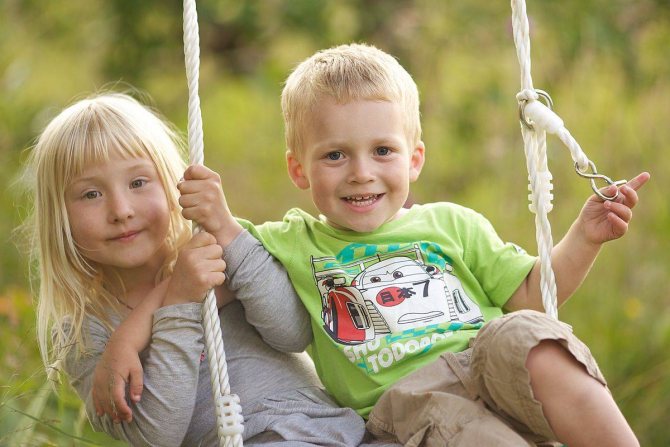
Parents need to pay attention to measures aimed at preventing the occurrence of cough. Considering the various reasons for its appearance, there are many directions
Among them, primary and secondary prevention are distinguished.
Timely vaccination against specific infections according to the vaccination calendar
This is especially important during the first year of life. Vaccinations against tuberculosis and whooping cough are carried out
At a later age, especially in preschool or schoolchildren, an annual flu vaccination is given. Preventing contact with infectious agents. To do this, the child should be isolated from sick family members or avoid being in crowded places. This is especially important during epidemic outbreaks. For older children, when attending school, it is recommended to use a cotton-gauze bandage, which is a barrier to their penetration into the body. Providing the child with a nutritious diet that contains sufficient nutrients. This applies to the consumption of vitamins and minerals necessary for the normal functioning of the immune system. In addition, the child's body must be fully provided with protein of animal or plant origin, as well as fatty acids. Carry out activities that will be aimed at strengthening immune forces. These are hardening procedures, such as swimming, air baths, and playing sports. For young children, it is recommended to regularly perform gymnastics, which prevents the development of congestion in the lungs. This group includes massage.
When a cough occurs, procedures are carried out that help prevent the development of complications. These include:
- Timely contact a specialist who will carry out all the necessary diagnostic measures and also determine treatment tactics.
- Regularly assess the dynamics of the disease. If there are no positive results, it is recommended to change treatment.
- Supplement therapy with traditional methods of treatment.
Treatment of cough in a child is carried out under strict medical supervision. You cannot self-medicate. At the first symptoms of cough, it is necessary to contact a medical institution for help. This is due to the fact that delay or the wrong choice of remedy can pose a threat to life.
source
Causes
The most common provocateurs of cough in children are:
- viruses;
- bacteria;
- allergens;
- poor quality air.
The most common causes of cough in children are infectious diseases and allergies (about 92% of all cases). Of this number, approximately 90% are due to infections, and only 10% are due to an allergic reaction. The champion among infectious diseases that provoke cough is ARVI.
A chest cough is never the only symptom of the disease. And just by the nature of a child’s cough, it is very difficult to determine what exactly triggered it: an infectious disease, an allergy, or dry, stale air in the apartment. This should be determined by an experienced physician, who in such situations analyzes a number of factors and symptoms, and not just the cough.
In addition to allergies or infections, cough can also be triggered by external factors, for example, bad indoor air. Sometimes, in order for the baby to start coughing, it is enough to simply not ventilate the children's room for several days and place a heating device near the child's crib. Dry air causes the lungs to produce additional mucus, which the body will reflexively try to get rid of by coughing.
If a child cannot cough up all the mucus accumulated in the lungs, then viruses will settle there. In this case, a common cold can turn into prolonged bronchitis or pneumonia. How to treat bronchitis and cough in an adult is described in this material.
Features of cough treatment in children
The cause of an unpleasant cough can be a common cold while walking or even when ventilating the room. Symptoms include dry mouth, raw mucous membranes, and soreness. There is no fever during illness, so cough medicine for children only eliminates the symptoms themselves. It is forbidden to use those drugs that block the source of cough, because they have a narcotic effect. Depending on the severity of the disease and its varieties, certain medications are used.
Dry cough
It is known that coughing attacks without sputum production are called the dry course of the disease, in which symptoms of tickling and vomiting appear. The attack can be barking, severe, not due to a cold, but due to physiology, when the baby tries to clear the bronchi of foreign bodies. This course is characterized by moments when the child cannot calm down, so medicine for dry cough for children is designed to relieve irritation from the mucous membrane.
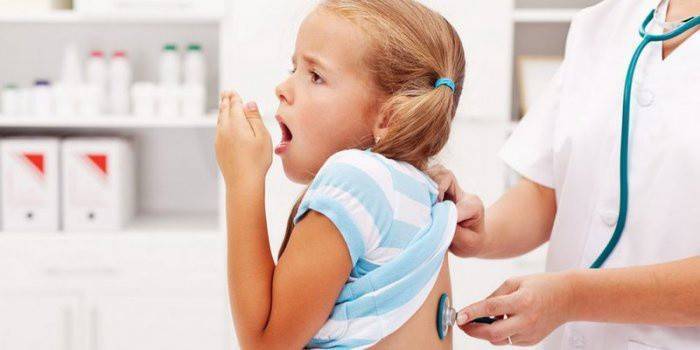
Wet
When the dry type of disease turns into inflammation of the bronchi, it becomes wet and requires other treatment. Symptoms include sputum production, chest type of disease, and pain in the lungs. A medicine for wet cough for children is designed to reduce the viscosity of sputum, improve its removal from the bronchi, helping to clear mucus. In this type, the use of drugs that suppress the centers of attacks is contraindicated, because stagnation of sputum can cause serious complications.
Allergic
A dry paroxysmal cough can be allergic when foreign bodies enter the children's body, causing immune rejection. This could be plant pollen, pet dander, or dust particles. Symptoms include a red throat and no fever. Treatment requires the use of antihistamines, which facilitate the body's transfer of allergens and reduce their harmful effects. To relieve bronchospasm, which invariably accompanies allergies, special complex remedies are used.
